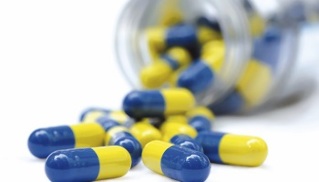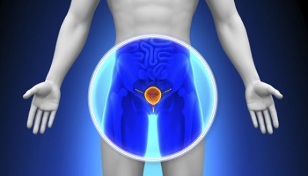
Prostatitis is an inflammatory or infectious urological disease that affects the prostate, not only causing impotence, but also infertility. According to statistics, this disease occurs in 50% of men. It is also worth noting that this disease is "becoming younger"-usually diagnosed in young people (not over 40 years old). The treatment of prostatitis, whether acute or chronic, is a long process, but it is usually carried out through conservative measures-the use of prostatitis pills, physical therapy procedures and lifestyle adjustments.
It should also be noted that if the drug treatment fails to achieve the expected effect or is not effective at all in a specific clinical case, surgery for such diseases cannot be ruled out. In any case, only the doctor will make a treatment plan based on individual circumstances.
Instructions for use
Important!Even the presence of typical symptoms is not a reason to take any prostate medicine. The clinical manifestations may be the result of another urinary system disease or even venereal disease. In addition, symptoms may be manifestations of prostate cancer, so taking certain drugs is not only ineffective, but also dangerous. After a male is diagnosed, only male prostatitis drugs can be prescribed by a specialist.
There are mild symptoms of early prostatitis.
The following clinical symptoms may indicate the development of acute prostatitis:

- pain during sexual intercourse or urination. It is worth noting that pain may occur even during erection and after intercourse.
- Increased the urge to urinate, often accompanied by unpleasant feelings;
- The pain appears in the pubic area, groin, and often radiates to the perineum and s-bone area;
- When suffering from an acute illness, the body temperature may rise;
- The erection is weakened, but full impotence will not appear;
- Pain during ejaculation;
- Premature ejaculation.
In chronic prostatitis, the clinical manifestations are almost the same, but manifested in a wave shape. In this case, the symptoms are not as obvious as the acute form. When the disease cannot be cured, it is this underlying pathological process that can delay the diagnosis.
Only after a comprehensive diagnosis can the doctor determine which drugs for male prostatitis are most effective in each case.
If prostatitis is suspected, please perform the following laboratory and instrument measures:
- Blood sampling for routine and biochemical analysis;
- STD test;
- PCR test;
- Bacteriological examination of urethral smear; Prostate rectal ultrasound examination; Ultrasound examination of the genitourinary system;
- CT or MRI of pelvic organs.

In each case, the treatment of prostatitis is individual.
Please note that this is just a sample diagnostic program. The exact list of analyses (including laboratory analysis and instrumental analysis) is individually determined by the doctor based on the results of the physical examination and the collected medical history.
Treatment
If there is no indication for surgery, the basis of treatment is medication. Since the drugs are prescribed separately, it is impossible to answer the question "which drug is most effective for prostatitis". Therefore, what works for one patient may not work for another patient.
The treatment of prostatitis with tablets involves taking drugs with the following scope of action:
- antibiotics;
- Non-steroidal anti-inflammatory drugs;
- Painkiller;
- alpha-blockers;
- Immunomodulator;
- Herbal pills or homeopathy.
The duration, duration and dosage of the medication are also determined by the attending doctor.
First, the doctor prescribed antibiotic therapy.
Antibiotics
In order to determine which antibiotic is suitable for the patient, a bacterial culture is first required. In most cases, treat:
- Tetracycline;
- Penicillin;
- Fluoroquinolol.
You should not decide on your own whether to take antibiotics, because if you take it incorrectly, the drugs in this pharmacology group will greatly affect human function.
Side effects include:
- allergic reaction;
- Complications from kidney and liver function;
- Tinnitus, dizziness, headache;
- Dermatitis;
- Drowsiness, lethargy;
- Nausea and vomiting.
If any side effects are detected, stop taking the pills and consult a doctor.
The doctor noticed that even if the infectiousness of the disease is not determined, the pain and other symptoms of prostatitis will be reduced after taking antibiotics.
For the treatment of non-bacterial prostatitis, patients need to take antibacterial drugs.
Non-steroidal anti-inflammatory drugs
This group of preparations is essential in the treatment of any form of prostatitis, because they can reduce inflammation and also cause uncomfortable symptoms caused by this pathological process-pain, burning, Heaviness in the groin.
However, if you have stomach ulcers or myasthenia gravis, you should not take it.
Painkiller
In this case, the drug is used for symptomatic treatment.
The attending physician also determines the safe dose. You should not abuse these drugs because your body will adapt to these drugs quickly and you will not be able to obtain the desired therapeutic effect.
Analgesics can enable men to lead a fulfilling life.
Alpha blocker
Drugs in this pharmacological category are used to improve urine outflow and are used in almost all forms of prostatitis.
It should be pointed out that, in most cases, these drugs are used for symptomatic treatment, rather than eliminating the root cause of the disease itself.
In addition, herbal homeopathy is also used. They are used in situations where antibiotics are not required.
Of course, no one can ban drugs without a doctor’s prescription, because many drugs are sold in pharmacies without a prescription. However, you need to know the following-taking medicine without a doctor's prescription may be harmful to your health. Even if the symptoms disappear, the disease itself may not be eliminated. This means that the pathological process becomes chronic and the risk of accompanying complications develops.
When you first develop symptoms, you should see your doctor instead of deciding whether to receive treatment. The doctor will not only choose effective pills, but also prescribe physical therapy procedures and give general advice. Only this comprehensive method of treating prostatitis can achieve the desired therapeutic effect.
In addition, you should prevent such diseases and receive preventive examinations by a urologist or andrologist on a regular basis (every six months).
























